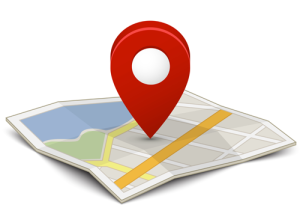An excellent idea will be the “key” to make the planning process for an event run smoothly and also affect the quality of the program. As a result, the organizer must have a unique suggestion, workable, and suitable context. Ben Thanh Media – Event will provide you tips on how to come up with a concept for an event in this post.
Define the purpose of the event
The question of “Why do we have to organize this event?” must be answered before you can move further. It will be easier for you to answer this question if you know what type of the event that is expected to be held. It might be a launching event for a new product or service, exchange events with potential partners and customers, a sports event, or an opportunity to share the organizer’s beliefs with the program’s participants.
The answer to the above question is to determine the event organization’s aims and objectives. This is the first step to do before planning an event. A clearly defined event sets the foundation for future implementations, keeping you in the right direction during the event.
For example, if you want to organize a sports event, marathon, you can find ideas related to local tourism to increase brand awareness, promote tourism, environmental protection and spread the sport spirit to the people.

(Image source: Collected)
Identify participants
In this step, the participant’s portrait is determined based on a number of characteristics such as age, gender, income, interests,…The target audience’s identification will facilitate implementation, guide the plan’s development, and better serve the needs of the guest group.
For instance, most of the attendees at a KPOP music concert will be young individuals with interests in Korea, etc. In a product launch event, the guests can be organizations, businesses or investors,…Or a marathon-related event in which participation will include professional athletes, semi-professionals, and marathon running enthusiasts from all around the nation.
As a result, while planning and preparing event content, determining the appropriate target audience is one of the most important considerations.

(Image source: Collected)
Determine the time of the event
To determine the right time to organize an event, you need to do more research on the needs of your participants. The moment should be suitable for the conditions and requirements of the subject. Assuming an event that the audience is students, the time for the organization should usually avoid exam preparation times. Or a mass event, fundraising, held on Saturday can attract the most attendees. Because the guests’ availability for work will be restricted if the event is scheduled during the week, and Sunday would interfere with the visitors’ holidays.
In addition, you should take the weather into account throughout the anticipated time frame and avoid scheduling events of the same type on the same day.
Not only that, but the choice of the event’s time also has a significant impact on the attendees and the direction the event needs to focus on. To prevent attendees from getting hungry, an event hosted at 15:00 will often utilize a snack party, a tea-break party, and an event organized at 18:00 can use a buffet, for example.
Choosing the right time to organize the event is a crucial stage; if you ignore it, the possibility of the event having risks and uncertainties is extremely large.

(Image source: Collected)
Determine the venue for the event
Next, you need to choose the venue and design everything to suit the theme, meet the guest requirements and ensure optimal cost. The following things need to be taken into account while selecting a location:
- The venue must match the theme of the event: While a scientific meeting needs to be hosted in a more formal, professional setting, the concerts are typically held outside.
- The venue must be suitable for the scale of the event: Should the venue be neither too tight nor too redundant and contain the expected number of guests?
- Consider the distance, traffic, parking, and other factors while choosing a place.
- Entrance area, rest area of audience, guests, VIP guests, staff,… must be suitable.
- Ensure requirements for food services, accommodation, security.
- Beware of problems with electricity and water. Ventilation and air conditioning systems; sound and light system; fire protection system.
- Is the location affordable?

(Image source: Collected)
Forming – develop ideas
Last but not least, what is the event’s theme? What activities can be done during the event? What resources are needed to organize the event? How can the event be advertised widely? What media will be used to publicize the event?… All of these must be in accordance with the needs and expectations of the participants that you have determined from the beginning.
One of the most important tasks during the creative stage is to find the key factors and special resources that make the event unique. You should first sketch up your event concept, possibly using a Mindmap mind map. You may arrange your event ideas and work more effectively as a result.
![]()
(Image source: Collected)
Finally, you need to coordinate with your teammates so that the idea of the event is better developed, creating the highest efficiency. Making sure that no person’s suggestion is disregarded because it is deemed outlandish or unfeasible. At this point, the event manager needs to arrange and synthesize ideas to come up with the most perfect choice possible.
In short, event planning is a procedure that requires time and patience to carry out. With the above sharing, Ben Thanh Media – Event hopes to help you with a unique and creative idea for your event.


